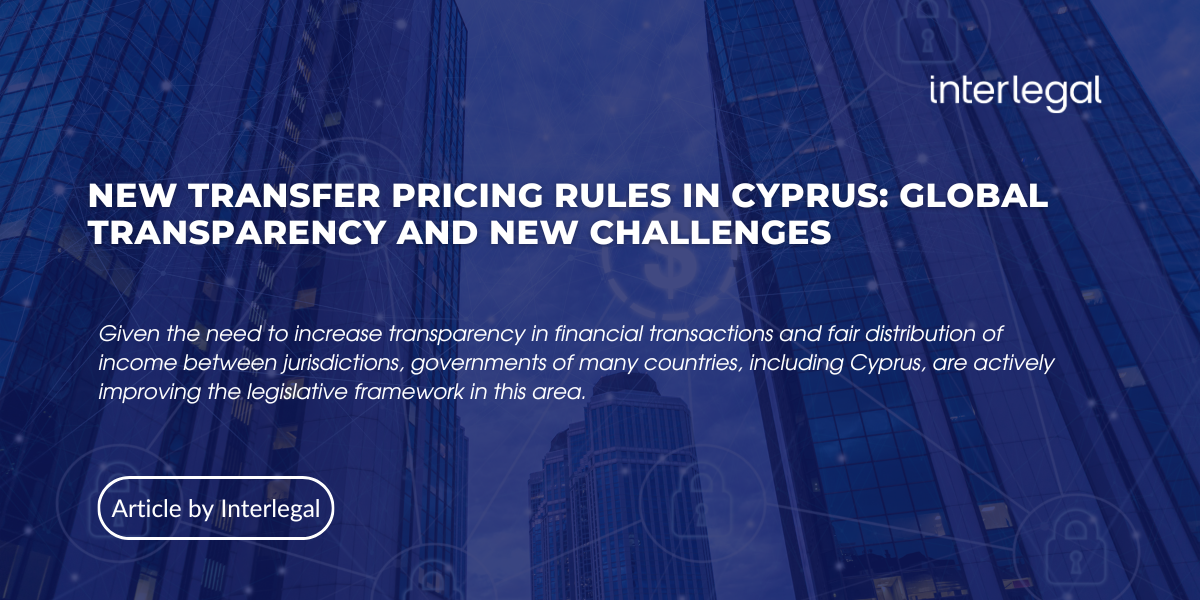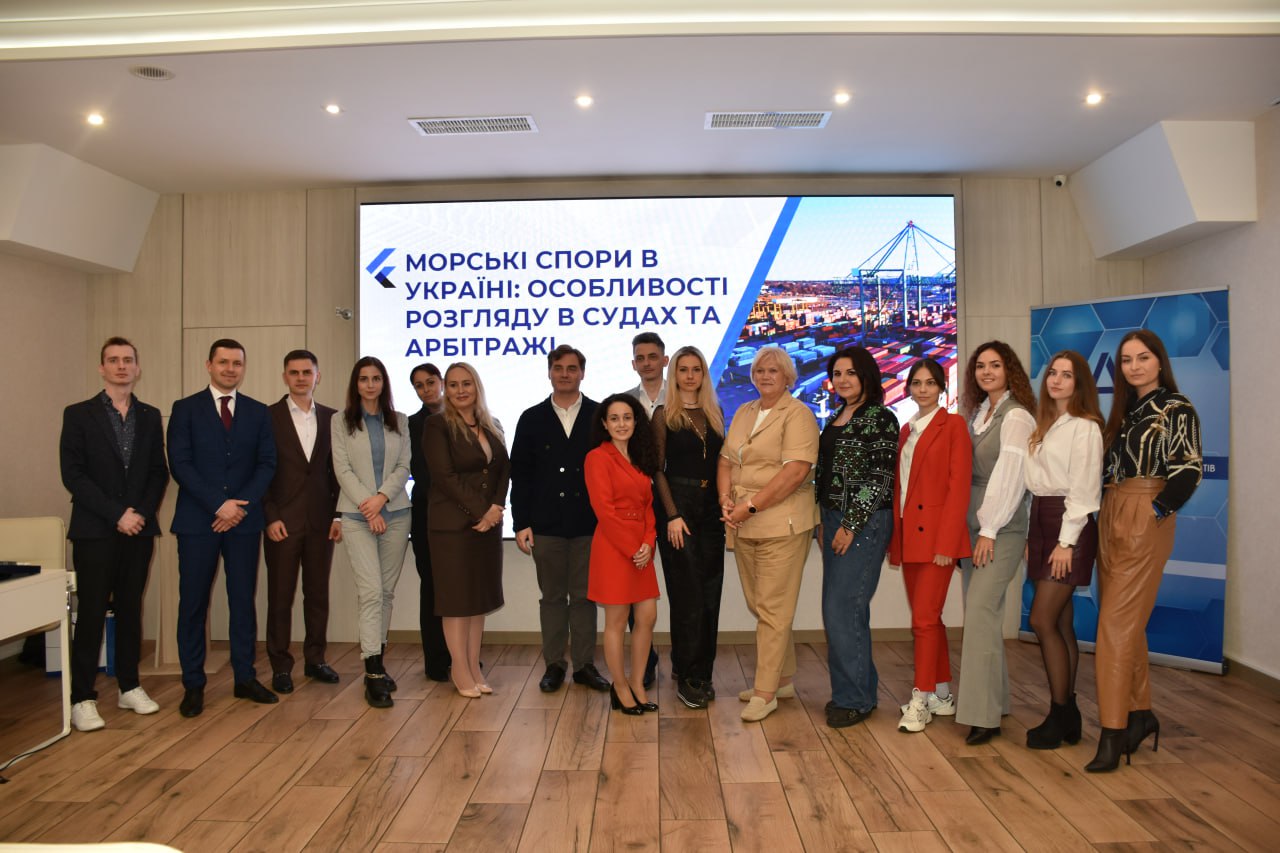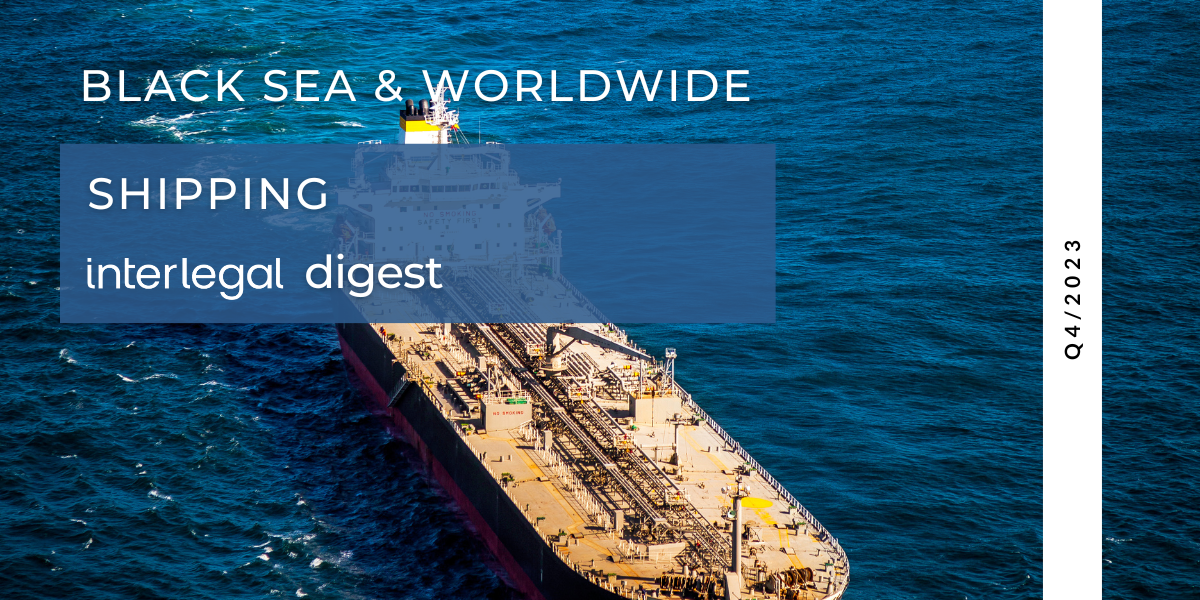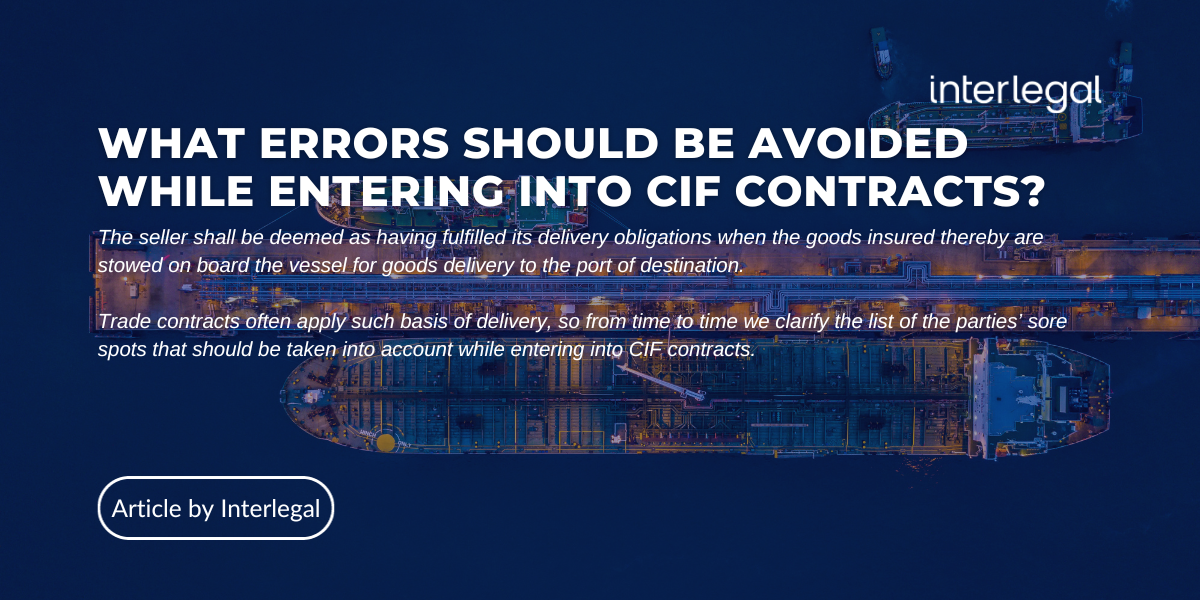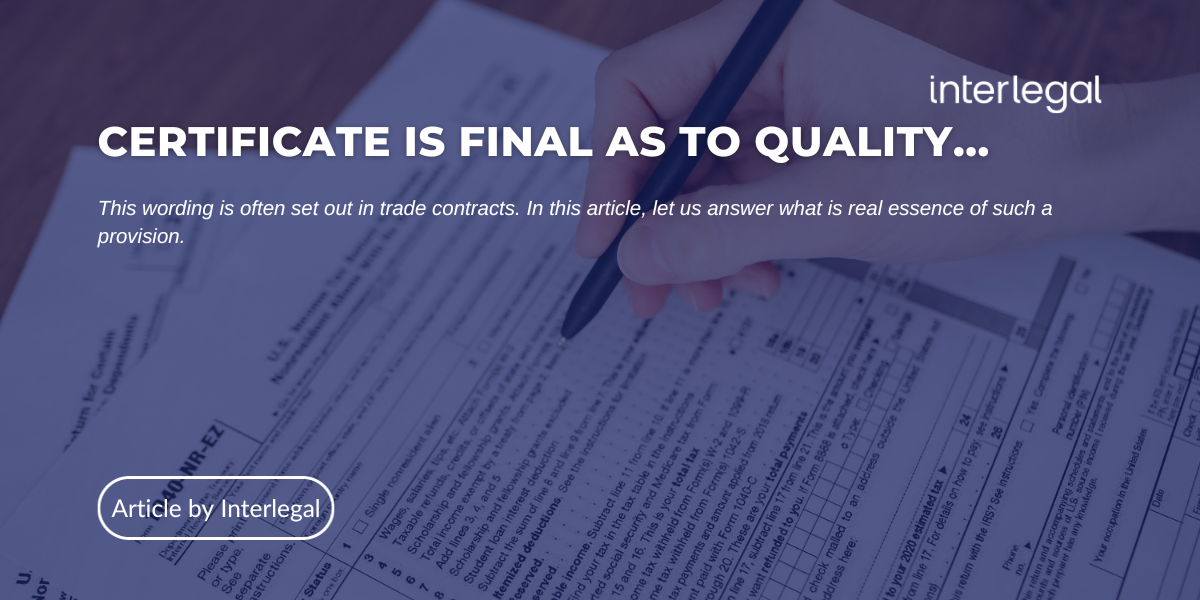Arbitration Watch Gafta case
20 November, 2012
4
Issues on foreign trade and international cargo carriage made up the majority of the work of transport lawyers in Ukraine. Wheat export from Ukraine was tacitly prohibited in summer 2010, while the corns export undercover prohibition started to act since the middle of October the same year. Such tacit prohibitions and subsequent introduction of grain export quotas in the beginning of November 2010 by a Resolution No. 938 and their replacement by duties on 2011 caused a number of claims and disputes between the parties to foreign trade in international arbitration courts. Not every exporter obtained the appropriate license. Every party considered numerous losses as a consequence thereof. Moreover, the complications with the customs clearance of goods led to significant losses of the consignees and material change of the transit and import cargo flows.
Specifically International Law Offices (Interlegal) was retained as the expert as for the Ukrainian law particulars and matter circumstances by Hallman Fenwick & Willan LLP who represented in GAFTA Arbitration the Buyers under the GAFTA No.49 form contract for the delivery of the Ukrainian corn. The arbitrational proceedings were connected with reimbursement of losses consequent to such introduction of grain export quotas in 2010.
The dispute arose in respect of a contract dated 23 June 2010 and amended 12 July 2010, whereby Buyers agreed to buy and Sellers agreed to sell a cargo of 30.000 MT Yellow Corn for delivery during 16 to 31 October 2010 FOB one Black Sea Ukrainian or EU port at Sellers’ option. The essence of dispute was a claim by Buyers against Sellers for having failed to deliver the goods. Sellers sought to justify their failure to ship the goods on the basis that they were prevented from delivering the goods following the issue of Resolution 938 by the Ukrainian government.
The defense position of Sellers was mainly based on the Clause 13 of GAFTA No.49, stating the following:
13. PROHIBITION – In case of prohibition of export, blockade or hostilities or in case of any executive or legislative act done by or on behalf of the government of the country of origin of the goods, or of the country from which the goods are to be shipped, restricting export, whether partially or otherwise, any such restriction shall be deemed by both parties to apply to this contract and to the extent of such total or partial restriction to prevent fulfillment whether by shipment or by any other means whatsoever and to that extent this contract or any unfulfilled portion thereof shall be cancelled. Sellers shall advise Buyers without delay with the reasons therefor and, if required, Sellers must produce proof to justify the cancellation.
Particularly, Sellers contended that when the vessel arrived at the port of Yuzhny on 15 October, the day the NOR was tendered no berth was free and moreover on 16 October the customs at the Ukrainian ports had stopped issuing shipping orders. Although the Ukrainian government quota requirement had not been imposed on 15 October, there had been a number of de facto restrictions on exports that were imposed in ports of shipment by local customs officials, which were operated as a precursor to the formally imposed quota system. Sellers referred to a number of news reports among others from GAFTA wherein the actions by the Ukrainian government were described as ‘seriously disruptive for the free flow of agricultural commodities’. Hence on their mind there could not be any doubt that even before the official implementation of Resolution 938 the Ukrainian government had taken steps to restrict the exports of goods.
Interlegal’s expert opinion in this respect was that the text of the Resolution No.938 and the Order attached to it does not contain any such wording as ‘restriction of export’ or ‘limitation of export’ or any similar phrase. From the text of the Resolution it is clearly seen that the Resolution ‘establishes quota volumes for the certain types of agricultural production’ (par.1 of the Resolution) and ‘defines the mechanism of issuing licenses for export of certain agricultural products and the distribution of quotas on its export…”.
Following the Resolution and the Order the first round for quota distribution was declared by the Ukrainian Government on 4 November 2010 for the period from the 4 to 18 November resulting in quota distribution and issue of licenses on 12 November for certain companies. This fact proves that the Resolution No.938 and the Order attached herewith can not be considered as the ‘act done by the government… restricting export’ as it just changed the documentary mechanism for export of certain types of the agricultural products which finally was duly passed by the companies who obtained the licenses on 12 November 2010 and renewed the export afterwards.
Clause 11 of GAFTA No. 49 put the burden of obtaining a license on Sellers: “export license if required, to be obtained by Sellers”. The only requirement introduced by Resolution 938 was that exporters had to obtain a license in order to ship the goods. However failure to obtain a license would not be an “executive or legislative act” within the meaning of the Prohibition Clause.
So the Buyers contended that in fact the export quota did not prevent fulfillment of the contract by Sellers because on 12 November, before the expiry of the contractual delivery, export licenses were granted in favor of 25 different companies in an amount of 1.481 million tons of corn, vastly in excess of the contract quantity of 30.000 mt.
Following Interlegal special local investigation, it was also appeared that one of the suppliers of Sellers had exported about 37,320 mt during October and more shipments were made by other exporters during the delivery period of the contract, a significant number of which were shipments of corn.
The best of the Buyers as the Claimants in this case was that GAFTA Tribunal so totally found and held their position concerning the Prohibition Clause, as totally satisfied the claim to get payment of difference between the contract price and the value of the goods on the day of default being US$ 3,232.500, to oblige Sellers to pay demurrage for the amount of US$ 282,283.40 and to get indemnification for the amounts of lost freight, consumed bunkers, agency fees, legal costs, compound interest and fees and expenses of the arbitration.
The opinion of GAFTA Tribunal was that Resolution 938, imposed by the Ukrainian Government, did not prohibit exports but introduced a mechanism of issuing licenses for the distribution of quotas for the export of a number of agricultural products including corn. The Tribunal concluded that although Resolution 938 was a legislative act by the Ukrainian government, it did not have such effect because all applicants who had applied in accordance with the terms and conditions of Resolution 938 had been allocated a license.
